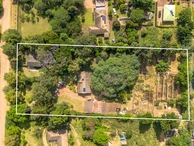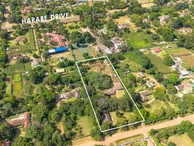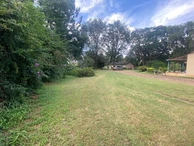 Continue with Facebook
Continue with Facebook
 Continue with Email
Continue with Email
 Continue with Facebook
Continue with Facebook
 Continue with Email
Continue with Email
 Sign up with Facebook
Sign up with Facebook
 Change filters
Change filters
 Requests
Requests




 4
4
 2
200 m²
2
200 m²

 5
5
 2
900 m²
2
900 m²

 6,705 m²
6,705 m²


 3
3
 2
600 m²
2
600 m²

 8
8
 4
400 m²
4
400 m²

 3
3
 2
400 m²
2
400 m²


 4
4
 4
240 m²
4
240 m²

 3
3
 2
1,000 m²
2
1,000 m²
Properties for sale in Marlborough, Harare West, are positioned in a well-established middle-income suburb with an average price of $250,000. These homes typically sit on land parcels around 2,000 ㎡, with building sizes averaging 200 ㎡. Larger properties can reach up to 4,275 ㎡ in size, and some land plots extend to 140,000 ㎡, offering a range of options for buyers seeking spacious living.
Many properties feature main en suite bedrooms, fitted kitchens, and are walled for added security. Good ZESA power supply and boreholes are common, ensuring reliable utilities. Tiled floors are also frequently found, contributing to a comfortable and practical living environment in this suburb.
Marlborough offers convenient access to essential amenities including Marlborough Shopping Centre and nearby Westgate Shopping Centre for retail needs. The area is served by reputable schools such as Marlborough High School and has healthcare facilities like Parirenyatwa Group Hospital within reach. Residents can enjoy nearby green spaces like Harare Gardens and cultural sites such as the Zimbabwe Museum of Human Sciences. Good road connectivity makes commuting to Harare’s central business district straightforward, making Marlborough a practical choice for families and professionals alike.

 1,600 m²
1,600 m²

 3
4,000 m²
3
4,000 m²

 4
4
 2
197 m²
2
197 m²

 3
3
 2
2
 400 m²
400 m²

 6
6
 4
270 m²
4
270 m²

 3
3
 1
800 m²
1
800 m²

 3
3
 2
280 m²
2
280 m²

 3
3
 2
2



 5
5
 2
400 m²
2
400 m²

| Property Size | Avg. price |
|---|---|
| Average price | $250,000 |
Transform your living space and boost your property's value by mastering the art of decluttering in the current 2026 market. From cutting cleaning time by 40%
In 2026, tech-forward investors are bypassing traditional banking delays by using Bitcoin and stablecoins to secure prime Zimbabwean real estate
Don’t let your property become a permanent fixture on listing sites; in 2026, a For Sale sign that lingers over 90 days often signals a failure in pricing or
Ensure your 2026 property transition is a handshake, not a headache. Whether you're moving into a high-tech Borrowdale villa or a solar-ready Avondale apartment
Rawson Properties interview with Richard Matengambiri